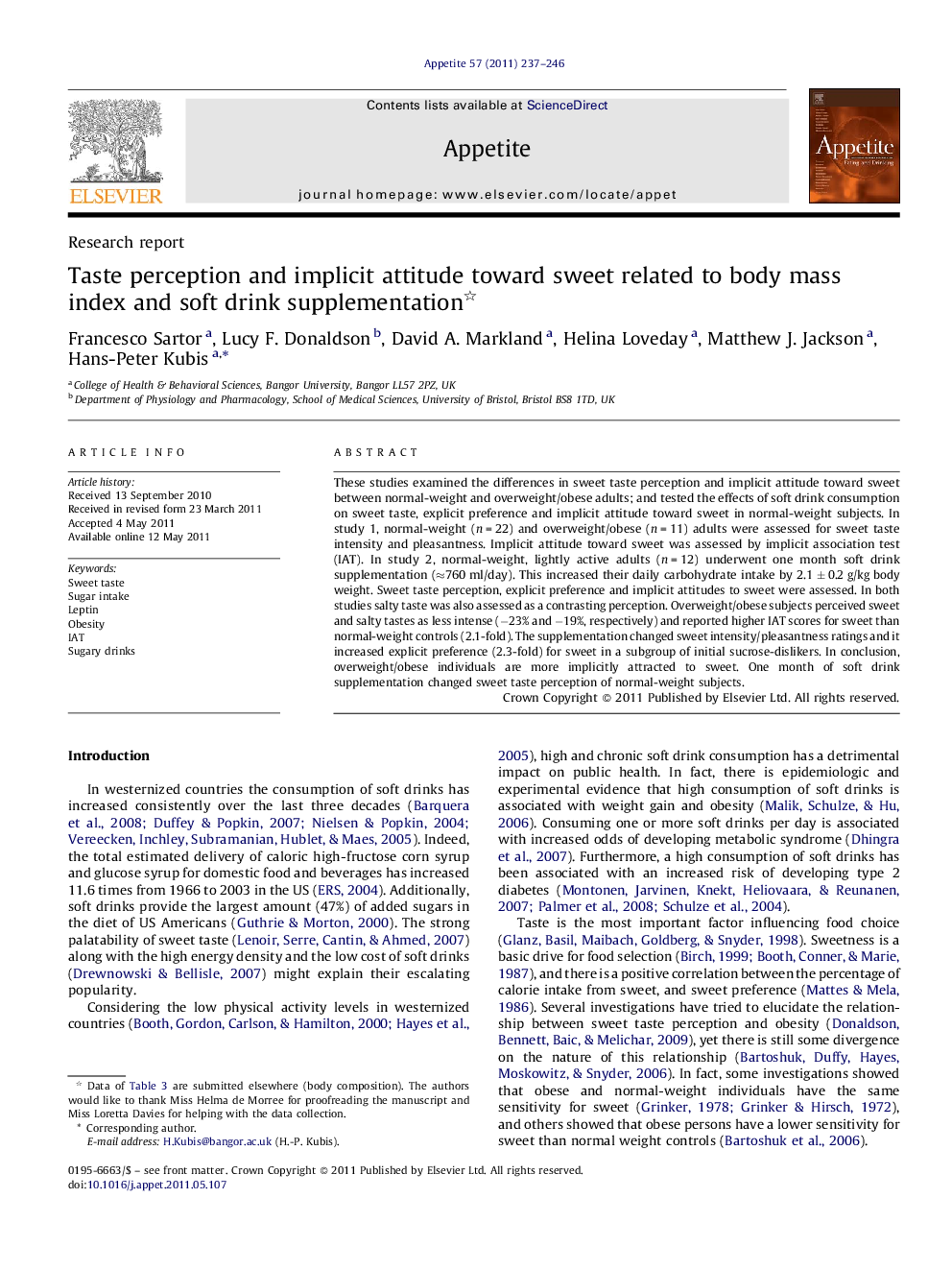| Article ID | Journal | Published Year | Pages | File Type |
|---|---|---|---|---|
| 940304 | Appetite | 2011 | 10 Pages |
These studies examined the differences in sweet taste perception and implicit attitude toward sweet between normal-weight and overweight/obese adults; and tested the effects of soft drink consumption on sweet taste, explicit preference and implicit attitude toward sweet in normal-weight subjects. In study 1, normal-weight (n = 22) and overweight/obese (n = 11) adults were assessed for sweet taste intensity and pleasantness. Implicit attitude toward sweet was assessed by implicit association test (IAT). In study 2, normal-weight, lightly active adults (n = 12) underwent one month soft drink supplementation (≈760 ml/day). This increased their daily carbohydrate intake by 2.1 ± 0.2 g/kg body weight. Sweet taste perception, explicit preference and implicit attitudes to sweet were assessed. In both studies salty taste was also assessed as a contrasting perception. Overweight/obese subjects perceived sweet and salty tastes as less intense (−23% and −19%, respectively) and reported higher IAT scores for sweet than normal-weight controls (2.1-fold). The supplementation changed sweet intensity/pleasantness ratings and it increased explicit preference (2.3-fold) for sweet in a subgroup of initial sucrose-dislikers. In conclusion, overweight/obese individuals are more implicitly attracted to sweet. One month of soft drink supplementation changed sweet taste perception of normal-weight subjects.
► Overweight/obese individuals (Ov/Ob) perceive sweet and salty as being less intense compared to normal-weight (NW) persons. ► Ov/Ob subjects revealed a trend toward higher pleasantness scores for sweet taste. ► Ov/Ob individuals have a stronger implicit attitude toward sweet food. ► Four week soft drink supplementation altered sweet taste in NW-subjects. ► Soft drink supplementation increased preference for sweet in sucrose dislikers.
